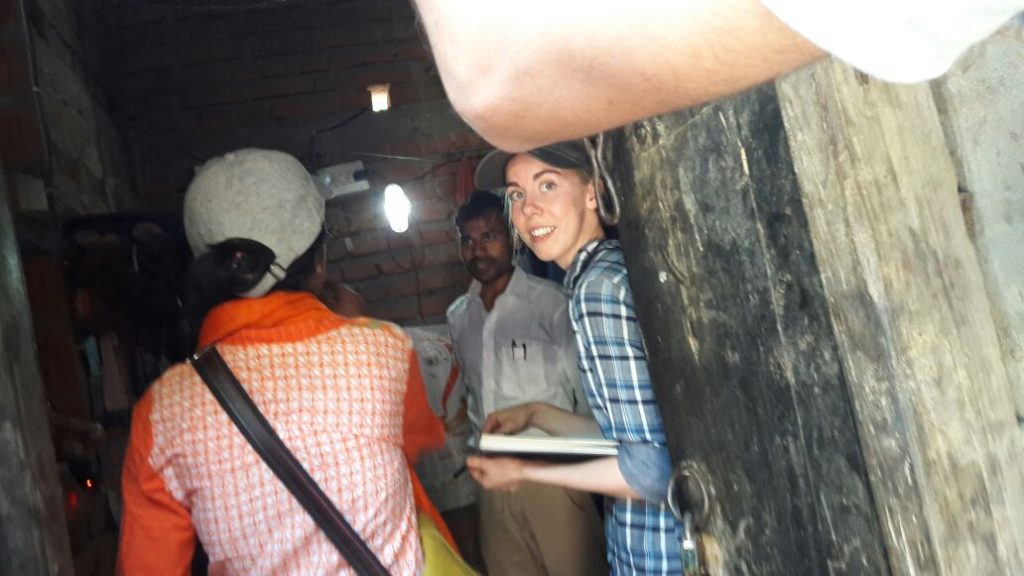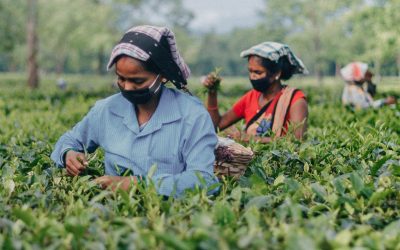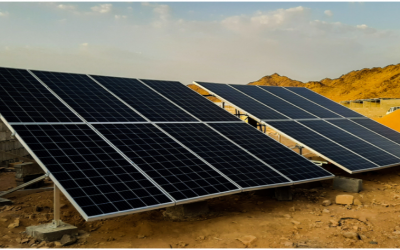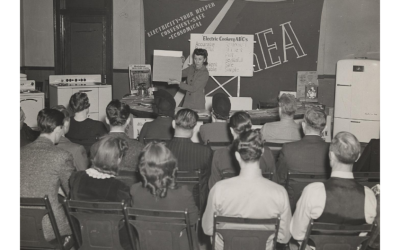Victoria Plutshack

Victoria Plutshack
Gender, Climate and Energy Specialist
Victoria is a social scientist whose research uses historical analysis and interviews with business leaders, policymakers and civil society groups as a lens through which to explore technology transitions.
In her recent role as Senior Policy Associate at the James E. Rogers Energy Access Project at Duke University her work focused on policy questions around the scale up of off-grid energy solutions, climate finance, and how gender plays a role in technology change. She also works to bridge the gap between practitioner experience and researcher knowledge in the energy access space.
She also conducts historical research into women’s roles in promoting domestic electricity in the U.S. and U.K. in the mid-20th century. She serves on the Board of Directors for the Remedial Herstory Project, a nonprofit working to get women’s history into the primary and secondary school curriculum.
Victoria holds a Ph.D. in Land Economy and a M.Phil. in Technology Policy from the University of Cambridge. She holds a B.A. in History from the University of Chicago.
Personal website: https://www.victoriaplutshack.com/
Recent Publications
- Journal Article: Women Work Particularly Well in Community Organizations: Cultivating Community and Consumerism in the Comanche County REA Women’s Club
- Report: An actionable research agenda for inclusive low-carbon transitions for sustainable development in the global south – Gender
- Working Paper: Gender, climate finance and inclusive low-carbon transitions
- Journal Article: Frameworks, methods and evidence connecting modern domestic energy services and gender empowerment
- Blog: Envisioning Women’s Electric Future
- Report: Energizing health: accelerating electricity access in health-care facilities
- Policy Brief: Climate Finance for Just Transitions
- Policy Brief: The Role of Taxes and Subsidies in the Clean Cooking Transition: A Review of Relevant Theoretical and Empirical Insights
- Blog: Better Sight, Better Light: Eyesight and Selling the Farm Wife on Electric Modernity
- Book Chapter: Positioned For Consensus – Market-based approaches, civil society and the role of the state in Chile’s coal phase-out
- Report: Catalysing Climate Finance for Low-Carbon Agriculture Enterprises
- Blog Post: Climate finance meets low-carbon agtech
- Blog Post: Building Back Better Means Unleashing the Power of Women
- Policy Brief: Analysis of the implications of the value-added tax on clean cooking in Kenya
- News: Biden’s infrastructure success depends on implementation, not just ideas
- Blog Post: Lessons from the proliferating mini-grid incentive programs in Africa
- Policy Brief: Lessons for Modernizing Energy Access Finance, Part 2 – Balancing Competition and Subsidy: Assessing Mini-Grid Incentive Programs in sub-Saharan Africa
- Blog Post: What COVID-19 has cost the climate
- White Paper: A Virtuous Cycle? Reviewing the evidence on women’s empowerment and energy access, frameworks, metrics and methods
- Report: Rural Investment: Building a Natural Climate Solutions Policy Agenda that Works for Rural America and the Climate
- Policy Brief: Lessons for Modernizing Energy Access Finance, Part 1: What the Electrification Experiences of Seven Countries Tell Us about the Future of Connection Costs, Subsidies, and Integrated Planning
- Blog Post: An off-grid energy future requires learning from the past
- Policy Brief: Profits and Productivity: Stimulating Electricity Demand in Low-Income Settings
- Journal Article: New and renewable energy social enterprises accessing government support: Findings from India
My Work
Global Assessment of Electricity in Healthcare Facilities
The Global Assessment of Electricity in Healthcare Facilities provides a comprehensive update on the status and key actions needed for providing reliable, modern energy to health-care facilities in low- and middle-income countries.
New Frontiers in Climate Finance
Investment decisions made in low- and middle-income countries leading up to 2030 will determine whether low-carbon pathways out of poverty and climate vulnerability are possible for millions, and whether the next global surge in emissions can be prevented. There...
Catalyzing Climate Finance for Low-Carbon Ag-Tech
Despite minimal contributions to causing climate change, rural households working in the agriculture sector are disproportionately impacted by climate-related shocks and see it as one of the biggest risks to their livelihoods.Climate finance presents a critical...
Building Back Better Means Unleashing the Power of Women
Victoria Plutshack argues for why incorporating women into the energy ecosystem is a critical part of the Build Back Better agenda.
Listen now! Balancing Competition & Subsidy: Mini-Grid Incentives Programs in Africa Webinar
What can we learn from countries trying to scale mini-grid deployment? In this webinar, hear early lessons from Africa in the latest report from the Energy Access Project at Duke, “Balancing Competition and Subsidy: Mini-grid Incentive Programs in Africa.” EAP’s Jonathan Phillips and Victoria Plutshack led the discussion with a host of experts in the field.
Lessons for Modernizing Energy Access Finance
A modern energy system requires modern energy finance. This on-going series explores the ways in which we can learn from how energy access has been financed in the past to build a better, more equitable future.Part One: Public Financing for Rural...
New Blog! Lessons from the proliferating mini-grid incentive programs in Africa
As governments put in place incentives to scale up mini-grid deployment, our team has reviewed 20 mini-grid programs in sub-Saharan Africa, in order to pull out some initial lessons.
What COVID-19 has cost the climate
Climate talks like the annual Conference of the Parties (COP) have led to many climate successes; informal conversations between international stakeholders at COP can become leverage for policy change at home, as seen in the case of Chile’s ambitious voluntary coal retirement scheme.
Come join the Electric Circus!
In 1935, only 10% of farms in the U.S. were electrified. This was seen as a huge problem – the productivity and quality of life that electricity could bring was bypassing the American farmer. In order to bring light to the countryside, the Rural Electrification...










